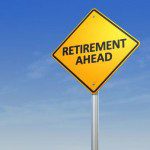munKNEE.com – A Fast & Easy Read of the Latest & Best Financial Articles
Cash is the snake oil of investing. It feels good for a while and it sounds like a reasonable fix, but it does absolutely nothing for you and, over time, it will give you one hell of a hangover. At best, it’s a false sense of security. As the volatility in the market pushes more people to sell, the amount we are holding is exploding and, as we age, this situation becomes increasingly threatening to our security.
reasonable fix, but it does absolutely nothing for you and, over time, it will give you one hell of a hangover. At best, it’s a false sense of security. As the volatility in the market pushes more people to sell, the amount we are holding is exploding and, as we age, this situation becomes increasingly threatening to our security.
The original article has been edited here for length (…) and clarity ([ ])
Since the stock market started its period of dramatic ups and downs (sometimes fluctuating even 300 to 400 points in a single day), the number of people who ask me what they should do with their holdings has spiked tremendously.
- Should I get out?
- Should I be in cash?
- Is the market going to crash?
- What does this mean?
- Is it safe?
The words change depending on the person, but the emotion is always the same: I’m scared and I don’t understand enough about what I own to know what to do…
Before all the gyrations took hold of the market (back when it was going straight up for what seemed like forever), Wells Fargo looked at the asset allocation for 940,000 households with $10,000 or more. The study compared the balance of cash to investments in their portfolios to that of the pros….
- Boomers hold twice as much cash as professionally managed accounts do.
- Gen Xers and millennials both have about three times the cash the pros think they need.
To be perfectly honest, after 28 years of working with the average person and their money, I know these numbers significantly underestimate current cash positions and it’s the volatility in the stock market for the past month or so – and the panic-selling it has been driving – that is responsible. We’re holding cash – lots of cash. Too much cash. A lot more than what the Wells Fargo survey is reporting and, after taxes and inflation, every penny is losing money every single day…
I know it feels safe and secure, but over time (something the longevity bonus has given most of us a lot of in retirement), we lose buying power in cash. It is a constant downward spiral that, as we draw down our cash position to pay our bills, causes our income base to shrink and, given enough time, being cash rich will one day result in not being able to afford the basics. Not maybe, not could – will! Yes, it is that serious.
The current market volatility is driving too many of us into large cash positions that are guaranteed losers. 20 to 30 years of unemployment require growth and income. The snake oil will not deliver. Keep your money at work (within your risk tolerance) or plan on being cash-strapped in your later years.
Related Articles From the munKNEE Vault:
1. How Much Cash Should You Keep In Your Portfolio?
Investors want to know how much of their portfolio they should be in cash but there is no absolute answer to this question. Some investors and traders will hold no cash when they have a strong opinion on the market while others will always hold some cash (e.g. at least 10%) no matter how strongly they believe in their market outlook. You can decide what percentage of your portfolio you should hold in cash right now by considering the following factors:
2. Take A Look: Cash Is King – At Least For the Moment
Cash is king. At least for the moment. In the first quarter of 2018, short-term Treasury bills finished higher while both the S&P 500 and 10-Year Treasury bond declined. The greatest fear among many investors is that this trend will continue. Is this a rational fear? How often has cash outperformed stocks and bonds historically? Let’s take a look.
For all the latest – and best – financial articles sign up (in the top right corner) for your free bi-weekly Market Intelligence Report newsletter (see sample here) or visit our Facebook page.
 munKNEE.com Your Key to Making Money
munKNEE.com Your Key to Making Money